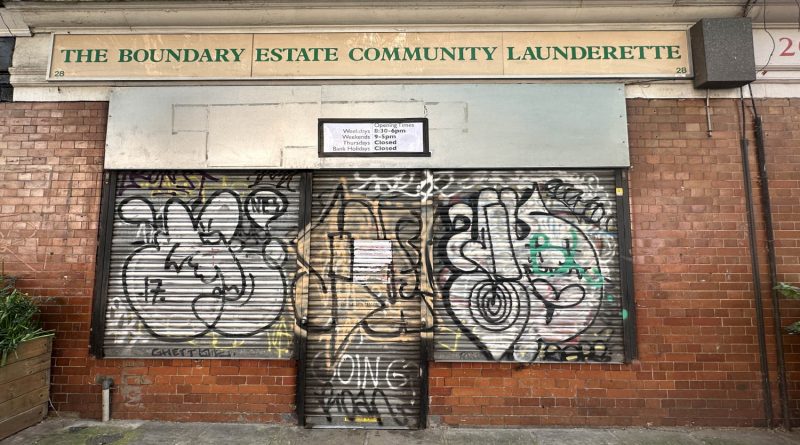Community Launderette reopens amidst gentrification concerns
On April 4 2024, Shoreditch’s Boundary Estate Community Launderette reopened after residents successfully petitioned against closure, allowing it to remain operational until June.
In Shoreditch, East London, the Boundary Estate Community Launderette has long served as more than just a place to wash clothes. It has become a symbol of community resilience, a spot where neighbours share stories, laughter, and support.
Volunteers set up the laundry service in 1992 to combat mould and damp issues in their flats.
Earlier this year, Tower Hamlets Council abruptly closed its doors in February, leaving residents grappling with not just dirty laundry, but also a loss of community connection.
A council spokesperson stated they initiated lease renewal talks in July 2023, aiming for sustainable rents.
The launderette stated that the council demanded an annual rent of £12,500, plus a year’s rent in advance, exceeding the original £2,000 rent by £10,000.
Spurred into action by the prospect of losing this vital community asset, staff and volunteers launched a petition, rallying residents and stakeholders to sign it.
Signatories requested that the Laundrette be eligible for the Community Benefit Rent Reduction scheme.
Since the Council repossessed the property on February 9th, the campaign gathered over 2,500 signatures and 300 messages of support.
Last week, the Laundrette reopened. It has been given temporary lease until 18 June until an agreement can be negotiated.
Tower Hamlets Mayor Lufthur Rahman assured residents of ongoing efforts by the council to secure the launderette’s continued operation.
However, the launderette’s brief closure has created concerns about the effects of gentrification in Shoreditch.
Between 2010 and 2016, Tower Hamlets ranked as London’s most gentrified borough, with Hackney also among the top five, as per a report by the Runnymede Trust.
In a borough where over 60% rent privately and housing costs rise, affordable amenities are crucial for locals.
As negotiations for a sustainable long-term arrangement continue, residents hope that they will hear their voices and safeguard their community assets for generations to come.

